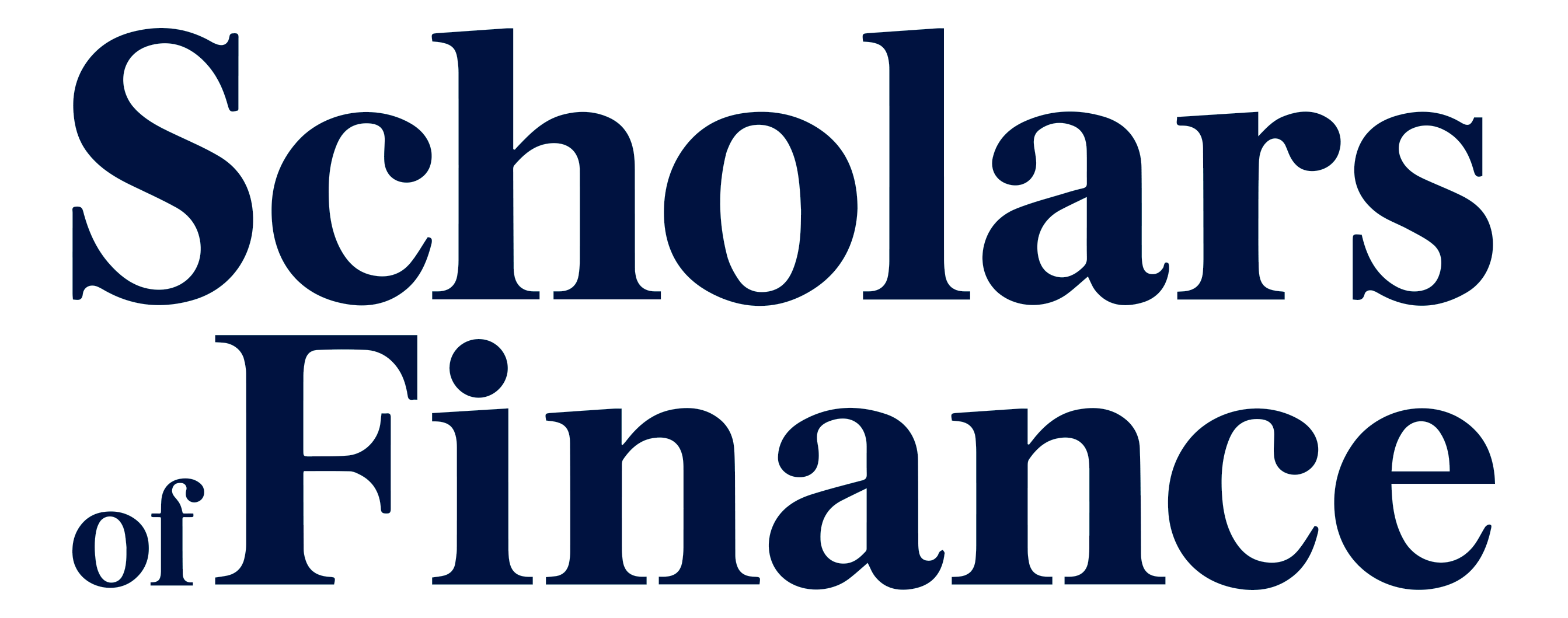
At Scholars of Finance, we have six core values that are at the center of what we teach and strive to lead with: Integrity, Compassion, Humility, Curiosity, Impact, and Courage. Each month, our members vote on the “Value of the Month”, which has increasingly been at the center of discussions we have at both undergraduate chapters and among our national team.
For the month of February, our Value of the Month is Impact. Some of our members asked me to share a brief background on why Impact was selected as one of our core values and how it helps us achieve our mission at SOF. So, I am going to walk through the value, its “epithet”, and the 4 principles we believe reflect this value. I hope to explain the rationale behind them and provide you with some examples and questions to help you consider how these may apply to you personally. Here they are:
Impact
Do excellent work
- Accept nothing less than your best
- Develop credibility through consistency
- Operate patiently and think long term
- Live a healthy and balanced life
We use the term “Impact” interchangeably at the organization to mean two things. Most commonly, we use “making an impact” to mean doing excellent work that advances our mission. Secondly, we “make an impact” on others, our organization, and the world by doing good, making a difference, or making lasting, positive contributions to society. The latter has become incredibly common today. We believe our mission of inspiring character and integrity in the finance leaders of tomorrow will make an enormous impact on the world in this sense. Ultimately, It will change how billions of dollars are invested and allocated – toward solving problems, improving communities, and helping people thrive.
Do excellent work
We define Impact as “doing excellent work” because we believe that is integral to making an impact (the “doing good” kind). Our vision is a future where all finance leaders steward the world’s capital to serve the greater good. This requires several components. First, we need ALL finance leaders on board. Yes, they need to view themselves as stewards – as fiduciaries who are entrusted with capital on behalf of others in a role of service. They do need to be motivated by improving the world around them, rather than self-gain, greed, or power. Accordingly, at Scholars of Finance, we often emphasize developing “highly principled” future leaders as the means of achieving this vision. But a clear reality is that we also must be the “highest performing” future leaders as well if our members are to enter finance, succeed, and ascend the ranks of leadership and reach a level of seniority where they can make a significant impact. They need to do excellent work to get in the door and then climb the ladder.
So, with that in mind, let’s break down our four principles for Impact, which we believe define the behaviors that reflect this in action – and also discuss why they are so important.
Accept nothing less than your best
Finance demands this from us. The gravity of our future decisions demands it. We believe members of Scholars of Finance will one day allocate millions or even billions of dollars. That’s an enormous responsibility and deserves our very best effort because those decisions can influence thousands of lives – and many more. I sometimes reflect on the precision that engineers at NASA or SpaceX have to employ in their work, and I genuinely believe investors should apply the same level of rigor in trying to allocate capital to its highest purposes – where it can do the most good. Practically, today, this looks like being detail-oriented, doing thorough research, and thinking critically. It’s putting in the extra effort.
Develop credibility through consistency
Finance is largely a relationship business. Our ability to bring projects to fruition or deals to close requires that others trust and respect us. Large and complex projects also require the collaboration of many people, so we need to consistently build credibility, across teams, companies, and contexts. We need to be consistent so people know they can count on both our word and our work. They need to know we will deliver. Many of our speakers and mentors share that they only want to work with people they trust, and in Wall Street, expectations of excellence are incredibly high – trust has to be earned constantly. Ralph Acampora, one of our Advisors, who is renowned on Wall Street, often says “it took me 50 years to build my reputation, and it could take me less than 5 minutes to destroy it”.
Operate patiently and think long term
Short-termism has been argued to be one of the largest hindrances to advancing society as quickly as we are capable of through investment in innovation and moving capital toward businesses and products that are in our collective, long-term best interest. For example, many have argued that short-term profit pressure has slowed our transition to renewable energy sources, leaving us with the prolonged effect of pollution and carbonization of our atmosphere – all of which are creating growing costs we will have to pay for years from now. In addition to the need to be patient with our investing to unlock progress for society, we need to be patient to advance deals, as they are often complex and take time. For example, I spoke to the former CEO of a top investment bank that had once acquired another sizable firm, and the CEO said that they had been building the relationships needed to close that acquisition for more than a decade.
Live a healthy and balanced life
This may seem counterintuitive, and to some, almost tone-deaf considering what we hear about the lifestyle and workload of investors. Our members pursuing roles in investment banking dread the 80-100 hour work weeks they’ve heard horror stories about. Rightfully so, because that kind of lifestyle drives burnout and sleep deprivation, which can lower our moral awareness and, not surprisingly, dramatically reduce our cognitive performance. In finance, the stakes are often high, with millions of dollars on the line. Tending to our mental, emotional, physical, and spiritual health is critical for our decision-making under those intense circumstances. Excellence requires us to operate at our highest levels, so sleep, nutrition, exercise, relationships, and every aspect of our lives need to be in order. Becoming an executive is also a multi-decade journey, which burnout would halt before we even get close to the “finish line”. We need to operate sustainably.
Conclusion
Hopefully, this begins to paint a picture of what Impact means to us at Scholars of Finance and why it’s important. Like most, we think it guides us toward making a difference in the world and people’s lives. And we also believe it entails holding ourselves to a high standard of excellence in the process.
In the months ahead, with members, mentors, and speakers, we will dive deeply into each of these principles. We hope that, as February winds to a close and you reflect on your impact, you can identify a few ways to do even better work – excellent work – that advances a mission that’s important to you.
Ask yourself: Are you doing your best work or spread so thin everything you produce is just “good enough?” Are you building credibility through consistency or creating for yourself a reputation for underdelivering? Are you thinking long-term or only thinking about this quarter, this month, or even this week? Are you living a healthy and balanced life or are you stressed, anxious, eating poorly, and barely sleeping?
Taking a bit of time to pause and soberly face these questions will almost always yield actionable insights. I hope that you’ll set aside even just 15-20 minutes sometime after reading this to ponder these questions, and ideally identify 1-2 things you can change in the week ahead to make more impact.
As I do the same, I am raising a virtual toast to you and to all of the long-term impact you’ll unlock as a result.


Recent Comments